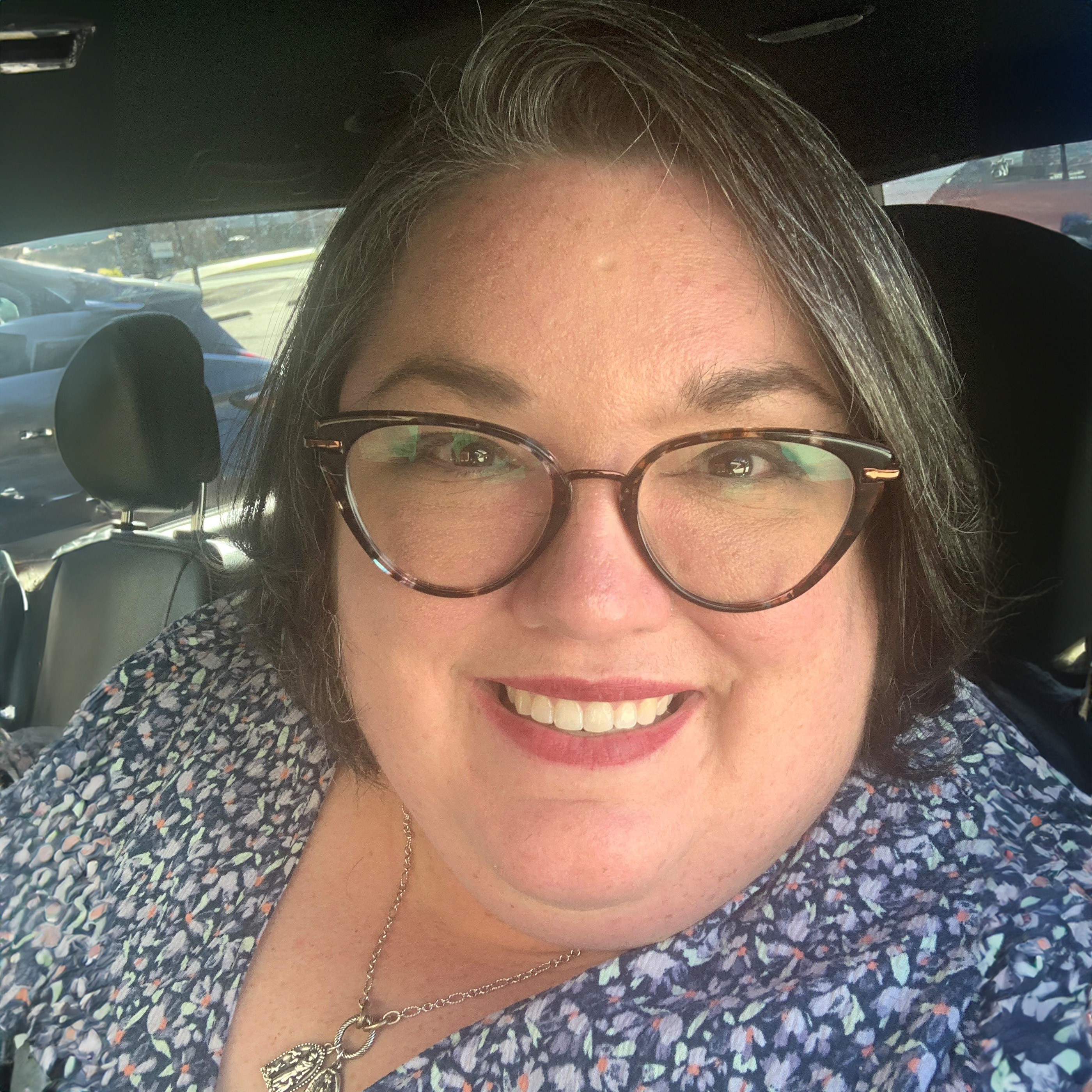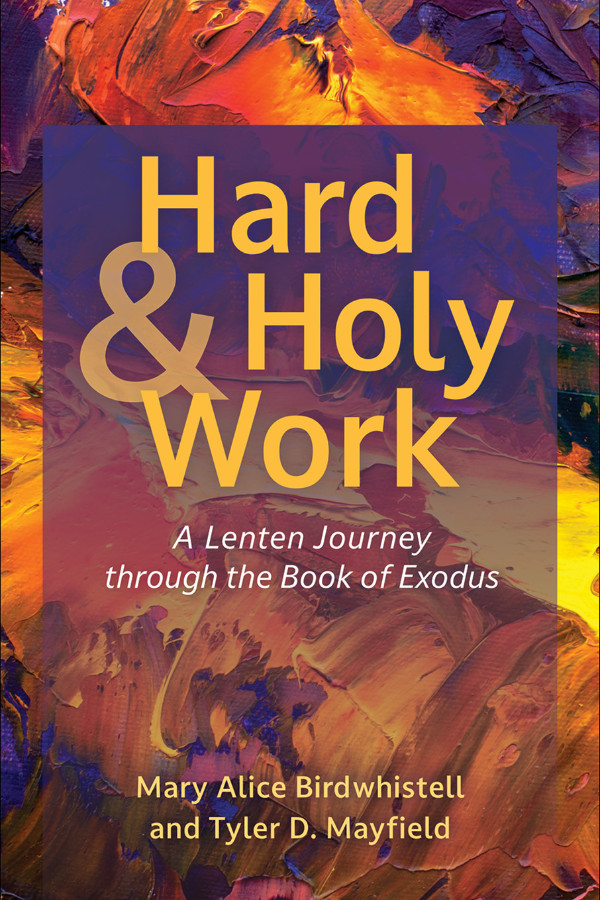From the preface
This little book of daily meditations on the Spirituals for the Christian season of Lent merges these two worlds (cultural-historical Black music with the church calendar) in order to help the reader travel the forty days of the Lenten wilderness with courage and honesty. Lent is a season of penitential reflection and repentance on the path toward the hope of Easter. That path walks in a dry desert where there is no water. The enslaved lived in their own inhumane wilderness for years, yet still sang songs of hope. From these cultural wells, we still drink.
These honest musical expressions -- the Spirituals -- in a Lenten mode quench our spiritual thirst and make up the main text of each day followed by a brief reflection. There are options given for daily Scripture readings as well as a portion of Scripture included. Each day closes with a short prayer. My prayer is that even in the laments, the reader will see the tiny sprout of hope springing from the page.
Week Three, Day 2 (Tuesday)
Genesis 15:1-12, 17-18; Psalm 27; Luke 13:31-35 or Luke 9:28-36; Philippians 3:17-4:1
Kum Ba Yah, My Lord
[…]
Someone needs you, Lord, Kum ba yah,
Someone needs you, Lord, Kum ba yah,
Someone needs you, Lord, Kum ba yah,
Oh, Lord, Kum ba yah.
-- Songs of Zion, 139
Regardless of where one finds themselves on the Lenten journey, this spiritual reveals a yearning heart that resonates with many who find themselves in a wilderness. That heart makes a repetitive plea: “Kum ba yah, my Lord,” translated, “Come by here, my Lord.” Come by here. It is a prayer for the presence of God wherever one might find oneself. If one is crying or singing or praying, what is obvious is that “someone needs you, Lord.” This is true every day of the year. Someone needs God, right now.
You might need God right now, today, regardless of your situation. Things may be fine with you. You could be singing up a storm full of joy, but this doesn’t neglect the need to pray, “Kum ba yah, my Lord,” nor your need of God in your life. This repeating line challenges us to make these words our words repeatedly. It suggests our vast need for the Presence. Come by here, my Lord. It would be a sad pilgrimage without God. It would be lonely but the spiritual reveals a faith that, in asking, believes that the Lord will come by here, will come by you, today. Underneath these words of prayer is the reminder that when we pray this, God will come because God is a God who is with us (Matt. 1:23). Here. There. And everywhere. With you. Today. Now.
As the sun was going down, a deep sleep fell upon Abram, and a deep and terrifying darkness descended upon him. … When the sun had gone down and it was dark, a smoking fire pot and a flaming torch passed between these pieces. On that day the Lord made a covenant with Abram, saying, “To your descendants I give this land, from the river of Egypt to the great river, the river Euphrates.”
(Gen. 15:12, 17-18)
Prayer for the Day
Kum ba yah, my Lord. Come by here, my Lord, even now.
Holy Week, Day 6 (Holy Saturday)
Psalm 39; Jeremiah 11:1-17; Romans 2:1-11
He Never Said a Mumbalin’ Word
They crucified my Lord,
and he never said a mumbalin’ word;
they crucified my Lord,
and he never said a mumbalin’ word.
Not a word, not a word, not a word.
They nailed him to a tree,
and he never said a mumbalin’ word;
they nailed him to a tree,
and he never said a mumbalin’ word.
Not a word, not a word, not a word.
They pierced him in the side,
and he never said a mumbalin’ word;
they pierced him in the side,
and he never said a mumbalin’ word.
Not a word, not a word, not a word.
The blood came trickalin’ down,
and he never said a mumbalin’ word;
the blood came trickalin’ down,
and he never said a mumbalin’ word.
Not a word, not a word, not a word.
He bowed his head and died,
and he never said a mumbalin’ word;
he bowed his head and died,
and he never said a mumbalin’ word.
Not a word, not a word, not a word.
-- Songs of Zion, 101
Silence can be underrated. In today’s culture, words seem to win the day. Words on TV, words in magazines, words on Twitter or Facebook, words on blogs, the war of words. Who is the loudest with words is often heard, but in the pause and space between the words, there is the break, the silence. It is often overlooked and not heard, yet there is the music of silence. Words come out of silence and return to silence. If there was only noise, we wouldn’t know what silence was nor could we distinguish it from noise or words. Sometimes, we need to be silent.
Jesus demonstrates this at such a tragic time. He’s being crucified, nailed to a tree, pierced in his side, blood trickalin’ down, and he eventually died. He could have said a lot of things to his oppressors, but “he never said a mumbalin’ word.” Never. “Like a sheep that before its shearers is silent, so he did not open his mouth” (Isaiah 53:7b). Not a word, not a word, not a word. Sometimes not saying a word is the best thing to say; words can be weapons, and as the saying goes, silence can be golden. Jesus was just present to the moment. He didn’t say anything with his mouth but said it all with his body. “This is my body, which is given for you” (Luke 22:19). That’s what was said in the silence. You could see the Word speaking this without saying any word whatsoever. Sometimes, we may underestimate the role of silence in the spiritual life, but it can be constructive and helpful and the most appropriate response. It was for Jesus. How about you?
I said, “I will guard my ways
that I may not sin with my tongue;
I will keep a muzzle on my mouth
as long as the wicked are in my presence.”
I was silent and still;
I held my peace to no avail;
my distress grew worse,
my heart became hot within me.
While I mused, the fire burned;
then I spoke with my tongue:
“Lord, let me know my end,
and what is the measure of my days;
let me know how fleeting my life is.
“And now, O Lord, what do I wait for?
My hope is in you.
Deliver me from all my transgressions.
Do not make me the scorn of the fool.
I am silent; I do not open my mouth,
for it is you who have done it.”
(Ps. 39:1-4, 7-9)
Prayer for the Day
Word of God, help me to know when to speak and when not to say a word.
From the book “Were You There? Lenten Reflections on the Spirituals” (Westminster John Knox Press, 2019), by Luke A. Powery. Reprinted by permission. All rights reserved.









